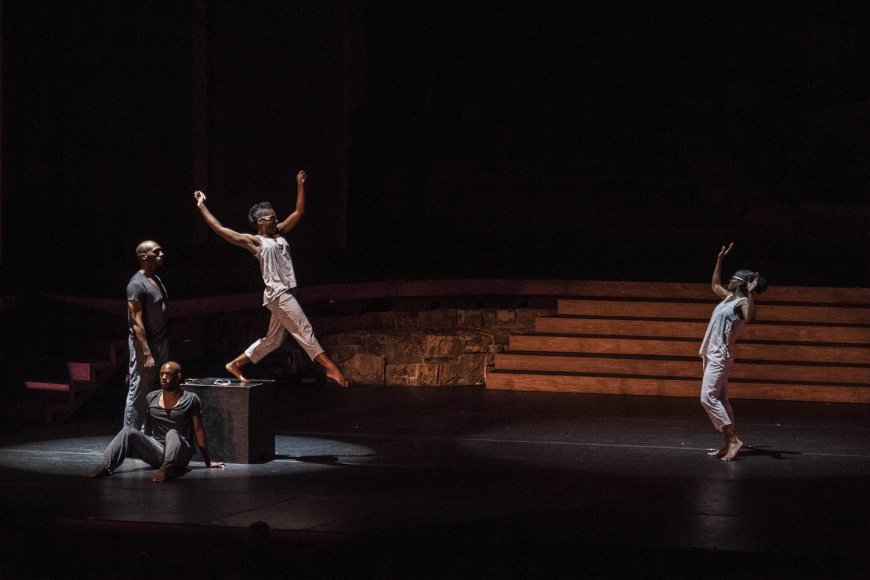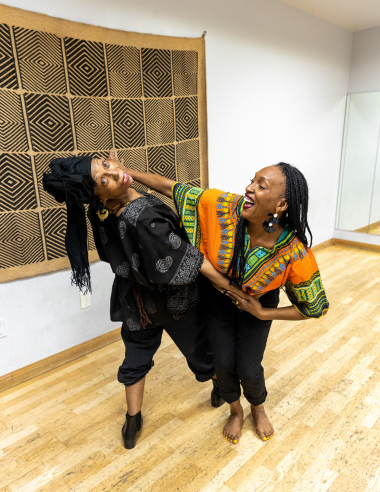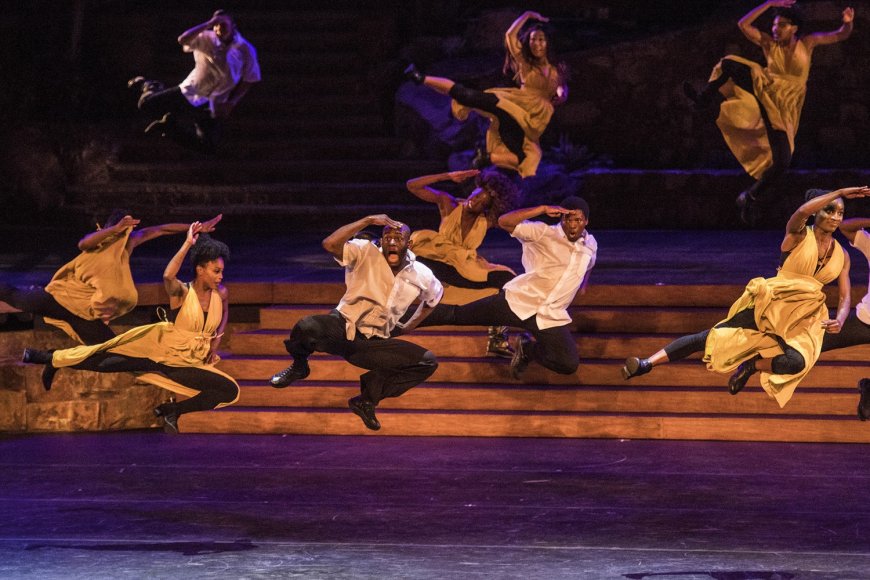
Los Angeles-based Lula Washington Dance Theatre, currently celebrating its 45th year, likes to keep things in the family. Its Aug. 23 concert at The Ford Theater will not only feature works by its namesake co-founder and her daughter, Associate Director Tamica Washington-Miller, but will also showcase company Music Director Marcus L. Miller, Tamica’s husband, on drums.
Washington has created some 35 dance works since founding the company with her husband Erwin blending African and Afro-Haitian movement with contemporary, hip-hop, jazz, and street styles. In addition, LWDT has commissioned works from well-known African American choreographers, including Donald McKayle, Donald Byrd, and Rennie Harris. The Ford concert is slated to feature McKayle’s Songs of the Disinherited.
That 1972 work chronicles the marginalization, suffering, and joy of Black people in the United States and is considered by many to be a masterwork in the American modern dance canon.

“Don [McKayle] was a major supporter of Erwin, myself, and Tamica,” said the 75-year-old Washington. “He mentored us from the time he set Songs of the Disinherited on us until the time he departed this planet [in 2018]. We performed it on our 25th anniversary and [are] pleased and excited about doing it at The Ford. [For this revival], his wife, Lea Vivante McKayle, has designed new costumes.”
In addition, the concert will feature “Mourner’s Bench,” an excerpt from Southern Landscapes (1947) originally choreographed and performed by Talley Beatty. Also on the bill are two solos by Martha Graham, “Deep Song” (1937), and “Satyric Festival Song” (1932): both were performed this past April at The Soraya during the LA Seen Festival.
“We started talking about this with The Ford a few years ago, and the first half of the program is fan favorites,” Washington-Miller, 55, said. “I think it was important for us to look back and pay homage to pioneers and iconic choreographers who made a pathway and who touched Lula and myself.”
Washington’s latest work, Master Plan, was made in 2024. A tribute to jazz saxophonist Pharaoh Sanders, it’s set to live music, with special guest singer Dwight Trible. The choreographer, who has previously been commissioned by the National Endowment for the Arts, the James Irvine Foundation, and the Ford Foundation, among others, said that she wants to “help viewers to hear and feel the power of the music, and see the power of the dance as a connection to a higher consciousness.”
Washington-Miller’s work, And We Can Fly, also from 2024, is based on the spiritual concept, movements, and phenomenon of the Ring Shout, a religious practice in which worshipers move in a circle while praying and clapping their hands. Thus, the performance features some audience participation. The choreographer was inspired by the African American folk tale “The People Could Fly,” as retold by Virginia Hamilton.

“It’s a fantastical story about hope, love, and faith,” she explained. “The piece is fun and engaging, but it also examines truths and realities about how people have been struggling to exist, especially right now.”
Returning to The Ford conjures fond memories for Lula Washington: “I remember, as a child, the splintery benches and the hot, hot seats,” she said. “I would always come with a blanket. Now that it’s been remodeled, the enhancements and with the lighting they have acquired, also helps to create an environment so we can transport people to a different mindset.”

